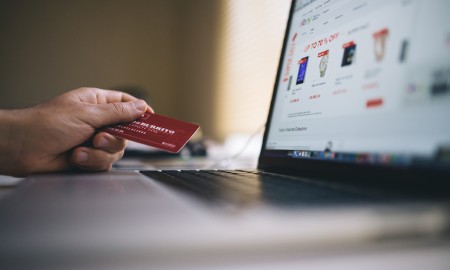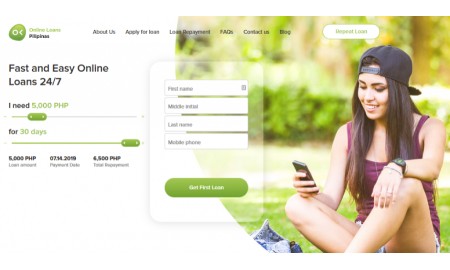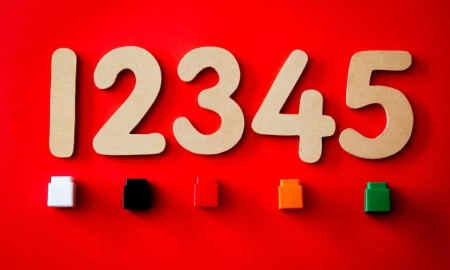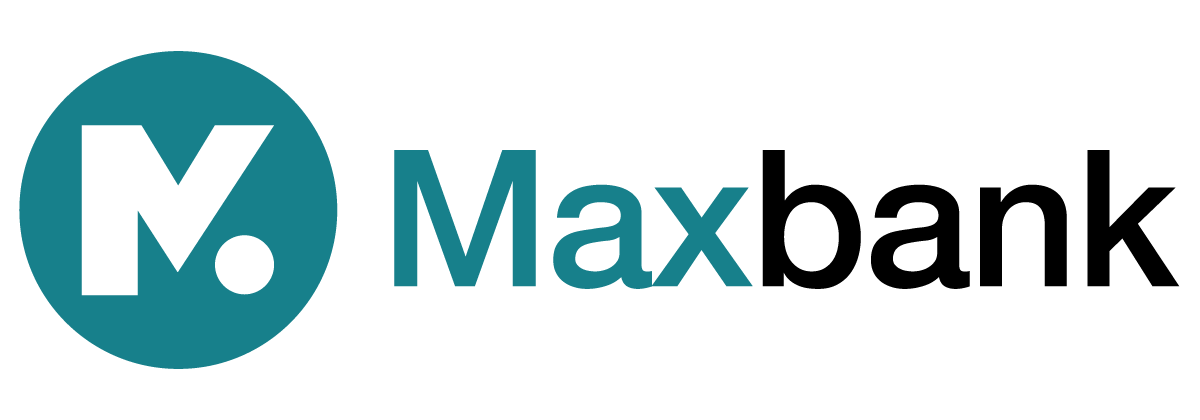May 17 2023
Navigating the Financial Landscape in 2023: Addressing the Rise of Unlawful Lenders in the Philippines and the Imperative of Choosing SEC-Licensed Institutions

Best online loans
In this article:
► The issue of unlawful lending in the Philippines 2023
► Who is responsible for verifying the legality of online loan applications?
► What steps can I take to determine the legality of a loan application?
► Unmasking the Unregulated World of Online Lending: A Deep Dive into Covert Practices
► The Unregulated Players in the Lending Market
► Investigations Reveal a Web of Deceit
► Unethical Lending and Collection Practices
► Exploitation of Personal Information
► The Human Cost of Unregulated Lending
► A Call for Regulatory Action
► Economic Factors and Financial Literacy
The issue of unlawful lending in the Philippines 2023
You know, illegal loans in the Philippines are a real thorn in the side. Picture this - folks get into a bit of a pinch, they need cash quick, and traditional banks just aren't cutting it with their red tape and all. So, they turn to these shady loan sharks who seem like a godsend at first, offering fast cash with no questions asked. But here's the kicker - these loans come with ridiculously high interest rates, often hidden in the fine print.
Before they know it, the borrowers are trapped in this vicious cycle of debt, where they're just making payments on the interest, hardly touching the principal. This is an issue that's been plaguing the country for years, and it's only getting worse. It's like a wildfire that just keeps spreading, affecting not only individuals, but whole communities too.
The government's tried to crack down on this, but it's like trying to hold water in a sieve. The illegal loan industry is elusive, often operating under the radar, making it a tough nut to crack. And let's not even talk about the social stigma attached to debt, which often deters victims from seeking help.
This problem of illegal loans in the Philippines, it's a real mess. It's one of those things that keeps the gap between the rich and the poor as wide as ever, preventing economic progress. It's a tricky situation, no doubt, but one that needs urgent attention. We need better financial education, stricter regulations, and a stronger support system for victims. Because, at the end of the day, it's not just about money, it's about people's lives.
Who is responsible for verifying the legality of online loan applications?
The Securities and Exchange Commission (SEC) is the regulatory body that oversees the legality of online loan applications in the Philippines. They have the authority to verify whether these loan companies possess the necessary certification to operate, as nearly all financial institutions must secure a license through the SEC.
This is in line with the Lending Company Regulation Act of 2007, which stipulates that only corporations are eligible to operate a lending company, and they can do so only with the explicit authorization from the SEC. The law is stringent and violations are dealt with severely. A breach of the regulations can result in penalties that may reach up to PHP 50,000. Furthermore, offenders may be subjected to imprisonment, with terms ranging from six months to as long as ten years.
Therefore, when you consider utilizing online loan applications in the Philippines, it is essential to be aware that the SEC plays a pivotal role in ensuring these platforms operate within the confines of the law. The SEC serves as a vital regulatory body that ensures the integrity of the financial sector by making certain that it operates in a fair and transparent manner.

What steps can I take to determine the legality of a loan application?
To determine the legality of a loan application in 2023, one can refer to the list of authorized online lending platforms provided by the Securities and Exchange Commission (SEC) of the Philippines. The SEC consistently updates this list, adding new licensed companies or removing those whose licenses have been revoked.
This list contains the following details:
- The official name of the company.
- The registration number.
- The Certificate of Authority (CA) number.
- The online lending applications that the company operates under.
The "online lending applications" section refers to the business names that the companies utilize. These names often differ from the company's official name, serving as more accessible and memorable brand names for their customers.
For instance, a company may be registered under a formal name such as "9F Lending Philippines Incorporated", yet operate their lending apps under different names such as "Pesoclick", "Quickpeso", and "Amihan". Similarly, "Acom Consumer Finance Corporation" does business under the name "ACOM – Fast Cash Loan. Simple.".
To verify the legality of a specific lending app, consult this list on the SEC website and locate the app's name. If the app is not present, it is likely that the company is not legally authorized to operate.
This comprehensive list is organized in alphabetical order by the companies' formal names, not their brand names. If you're trying to locate a specific app, consider using the 'CTRL +F' function on your keyboard to facilitate your search.
As of May 16, 2023, some of the companies included in this list are "BooMinG Lending Investors INC.", "BOPA-RAI LENDING CORPORATION", and "BRIGHTCAST LENDING SERVICES INC." among others. Please consult the SEC's list for the most updated information.
To verify the legitimacy of an online lending application or creditor, one can follow these steps:
- Visit the Official Website of the Securities and Exchange Commission (SEC) of the Philippines. This is the official body that regulates and monitors the operations of lending and financing companies in the country.
- Navigate to the List of Recorded Online Lending Platforms. This page can be found under the "Lending Companies and Financing Companies" section of the website. This list contains the names of all online lending platforms that have been recorded by the SEC.
- Use the 'Ctrl+F' function to search for the name of the specific online lending platform or company. If the company is included in the list, it indicates that it is a recognized entity and is allowed to operate as an online lending platform in the Philippines.
For example, as of may , 2023, the following companies have been recognized as legitimate online lending platforms by the SEC:
- 9F Lending Philippines Incorporated, which operates the online lending applications Pesoclick, Quickpeso, and Amihan.
- Acom Consumer Finance Corporation, which operates the online lending application ACOM – Fast Cash Loan. Simple.
It is important to note that the list is updated regularly, so it is advisable to check the SEC website frequently for the most current information. Additionally, the presence of a company on this list does not guarantee the quality of its services or the fairness of its lending rates, so it is always a good idea to do further research and compare different options before choosing a lender.
Unmasking the Unregulated World of Online Lending: A Deep Dive into Covert Practices
The world of finance is an ever-evolving landscape, but one alarming trend that has emerged recently is the rise of unlicensed online lending operations. These entities operate in the shadows, exploiting loopholes and preying on vulnerable individuals in their quest for profit. However, their covert operations are now being brought into the light, thanks to the diligent work of the Corporate Governance and Finance Department (CDFD) and the Enforcement and Investor Protection Department (EIPD).
The Unregulated Players in the Lending Market
According to the CDFD, it's clear that these online lenders, otherwise known as "Online Lending Operators," are operating without the legally required Certificates of Authority. These certificates, which allow companies to function as legitimate lending or financing entities, have not been issued to these operators, calling into question the legality of their operations.
Investigations Reveal a Web of Deceit
The EIPD has delved deep into the operations of these Online Lending Operators, uncovering a network of unlicensed entities offering loans to unsuspecting individuals. This is primarily done through online platforms, which are easily accessible and extensively advertised on popular social media sites like Facebook. The public is often lured into these traps by promises of easy loans, only to find themselves in a web of high interest rates and unreasonable terms.
Unethical Lending and Collection Practices
Unfortunately, the EIPD's investigation has revealed a plethora of complaints against these Online Lending Operators. The public has voiced concerns about their unscrupulous lending and collection methods, which include unreasonable and high-handed practices. These practices not only subject the borrowers to public ridicule and humiliation, but they also violate the borrowers' right to privacy.
Exploitation of Personal Information
A significant concern raised in the EIPD's findings is the misuse of personal information. To avail of these loans, borrowers must install the lending applications on their mobile devices. This provides the Online Lending Operators with unrestricted access to the borrower's personal data, including contact numbers, Facebook accounts, and email addresses. This data is then used to coerce debtors into repaying their loans, often through threatening text blasts and social media posts.
The Human Cost of Unregulated Lending
The psychological and emotional toll inflicted by these predatory practices is profound. Borrowers have reported experiencing depression, anxiety, and sleepless nights due to the harassment they have faced. In one tragic instance, a borrower reported that the stress caused by these abusive practices contributed to his father suffering a heart attack.
A Call for Regulatory Action
The EIPD's investigation into these unlicensed Online Lending Operators has revealed a troubling lack of regulation in the online lending industry. The findings serve as a stark reminder of the urgent need for effective oversight and enforcement of lending laws. The decision on whether to issue a Cease and Desist Order (CDO) against these operators now lies with the Commission.
In conclusion, it's crucial that potential borrowers stay vigilant and informed about the potential dangers of unregulated online lending. As the EIPD's investigation reveals, the allure of easy money can often lead to unanticipated hardships and violations of privacy. As such, it is important for regulatory bodies to take strong action to curb these predatory practices and protect consumers.
The Proliferation of Unlawful Lenders and Loan Apps in the Philippines: The Importance of Choosing Officially Licensed Institutions
The Philippines has witnessed a surge in the number of illegal lenders and credit applications, a worrisome trend that has serious implications for the country's financial landscape. This alarming increase can be attributed to several factors, including economic conditions, a lack of financial literacy, and the ease of access provided by digital platforms.
Economic Factors and Financial Literacy
The economic landscape in the Philippines, characterized by large income disparities and a significant percentage of the population living below the poverty line, has created a fertile ground for unlicensed lenders. These unregulated entities often prey on those who find it difficult to access traditional banking and financial services, exploiting their desperation and lack of options.
Compounding this issue is a general lack of financial literacy. Many Filipinos are unaware of the potential pitfalls of borrowing from unlicensed lenders, including exorbitant interest rates, hidden fees, and harsh collection practices. They may be drawn in by the allure of easy money without fully understanding the long-term implications of their decision.
The Role of Digital Platforms
The rise of digital platforms has made it easier than ever for unlicensed lenders to reach potential borrowers. These platforms are often sophisticated, user-friendly, and provide an illusion of legitimacy, making it difficult for the average person to discern between licensed and unlicensed lenders.
Moreover, these platforms often require users to provide personal information, which can then be misused for coercive collection practices. The combination of easy access and a lack of privacy safeguards makes these platforms especially dangerous for unsuspecting borrowers.
The Importance of Choosing Licensed Institutions
Choosing to borrow from an institution licensed by the SEC Securities and Exchange Commission is paramount for several reasons. Firstly, these institutions are bound by law to adhere to fair lending practices, which include reasonable interest rates, transparent fee structures, and ethical collection practices. Borrowers are thus protected from the predatory practices often seen with unlicensed lenders.
Secondly, licensed institutions are subject to regular inspections and audits, ensuring that they maintain high standards of conduct and operations. Borrowers can therefore have confidence in the financial stability and integrity of these institutions.
Lastly, borrowing from a licensed institution means that you have recourse in the event of a dispute. The SEC Securities and Exchange Commission provides avenues for borrowers to lodge complaints and seek redress, a protection not afforded when dealing with unlicensed lenders.
In conclusion, while the prevalence of unlawful lenders and loan apps in the Philippines is indeed concerning, it underscores the importance of financial education and regulatory oversight. Borrowers must be made aware of the dangers associated with unlicensed lenders and be encouraged to seek out officially licensed institutions for their financial needs. As the saying goes, "If it seems too good to be true, it probably is." In the world of finance, this axiom holds truer than ever.
Related articles







